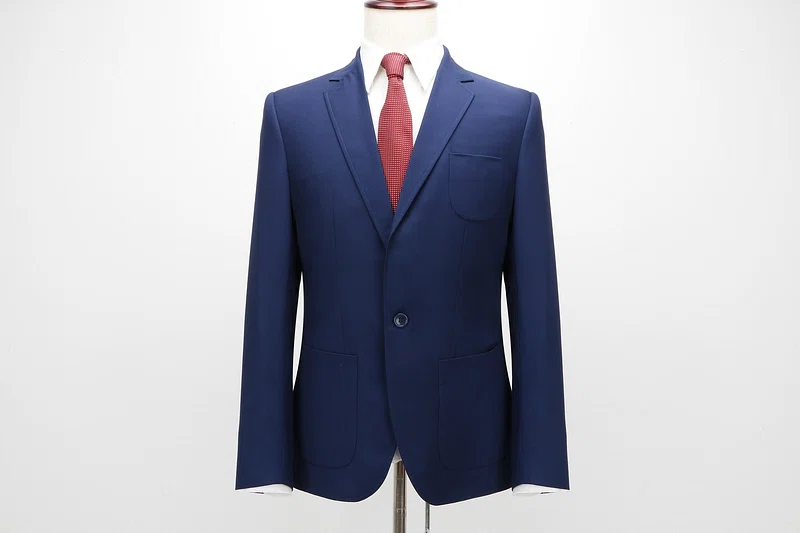If politics had a dress code, it would be hand-stitched with outdated notions of masculinity and power. On Feb. 28, Ukrainian President Volodymyr Zelenskyy arrived at the Oval Office without a suit and reporter Brian Glenn felt compelled to ask about his attire. I’m sure Zelenskyy’s response referring to suits as a “costume” had traditionalists clutching their ties and guarding their lapels against such “savagery,” despite Zelenskyy wearing the attire to remain in solidarity with his soldiers.
This concern over Zelenskyy’s choice of attire goes beyond “the dignity” of the Oval Office; it highlights how deeply politics and toxic masculinity are intertwined.
While Zelenskyy’s remark could be dismissed as an accident (since the word for suit in Ukrainian is “kostyum”), it remains fitting, as leadership is too often evaluated by dominance rather than genuine governance.
For years, political power has been entangled with theatrical performances of popular masculinity. These ideas — which misinterpret aggressiveness as decisiveness and vulnerability as weakness — codify the definition of male leadership at the expense of democracy, diplomacy and ethics.
President Donald J. Trump is an example of this show of masculinity in several instances. During the 2016 GOP debate, he defended not his policies but his “masculinity” after Sen. Mark Rubio mocked his hand size. Later, Rubio took this slightly “unmasculine” trait and said, “You know what they say about men with small hands? You can’t trust them.” This rhetoric between Trump and Rubio may seem like nothing, but is direct evidence on how masculinity is tied to governance within the political world.
Ideas of American and misogynistic masculinity fueled Trump’s efforts to overturn the 2020 election. According to The New York Times, Trump tried to convince Mike Pence to overturn the election saying, “You can either go down in history as a patriot or you can go down in history as a pussy.” This framing equated patriotism not with democracy but with dominance. Trump pressuring Pence to overturn the election is anything but fair and democratic, but here Trump defines it as patriotism to support his cause.
Trump used this exact form of persuasion to mobilize his supporters into raiding the U.S. Capitol, saying, “We will stop the steal” and “We fight like hell, and if you don’t fight like hell, you’re not going to have a country anymore.” This twisting of patriotism and masculinity-fueled aggression is what lit a fire in thousands of Trump supporters to raid the capital in the name of preserving the dignity of Trump and his supporters. It was a temper tantrum of sorts, when theatrical representations of “leadership” failed.
This is not the only form of toxic masculinity within the political world. More recently, X (formerly known as Twitter) users criticized Gov. Tim Walz for shedding tears with many during Kamala Harris’s concession speech following her 2024 election loss. According to The Sun, Walz, a user wrote, “[Tim] Walz is crying, man we dodged a bullet with this one. This is incredibly unsettling.”
This is not the first time politicians have been criticized for showing emotion. In 2016, the National Rifle Association criticized Barack Obama for shedding tears on social media as he spoke about the 2012 shooting in Newtown, Connecticut, while announcing an executive action on gun control. According to BBC News, the NRA released a statement calling the speech an “emotional, condescending lecture.”.
Compare this to the public response to Trump’s 2020 election loss. Interestingly, there is only one difference. The difference is not that one side was emotional while the other was not. It is not about strength or weakness. It is that Harris’ concession itself– the speech, the supporters and the loss — was not tainted by the toxic masculinity that fueled the Capitol riot. Both speeches were framed around fighting for America, but only one resulted in sincerity. The other was a tantrum dressed up in a red, white and blue American suit.
At the root of this obsession with masculine performance — whether it is attire, stoicism, or “fighting like hell” — is a fragile person. This constant rejection of emotions, humility and respect damages the political world.
It is not about wearing a suit, not crying or giving masculating speeches. It is not about those theatrics but what you do for the people. Zelenskyy may not wear a suit, but at least he does not hide behind one. Disrobe the politicians.







